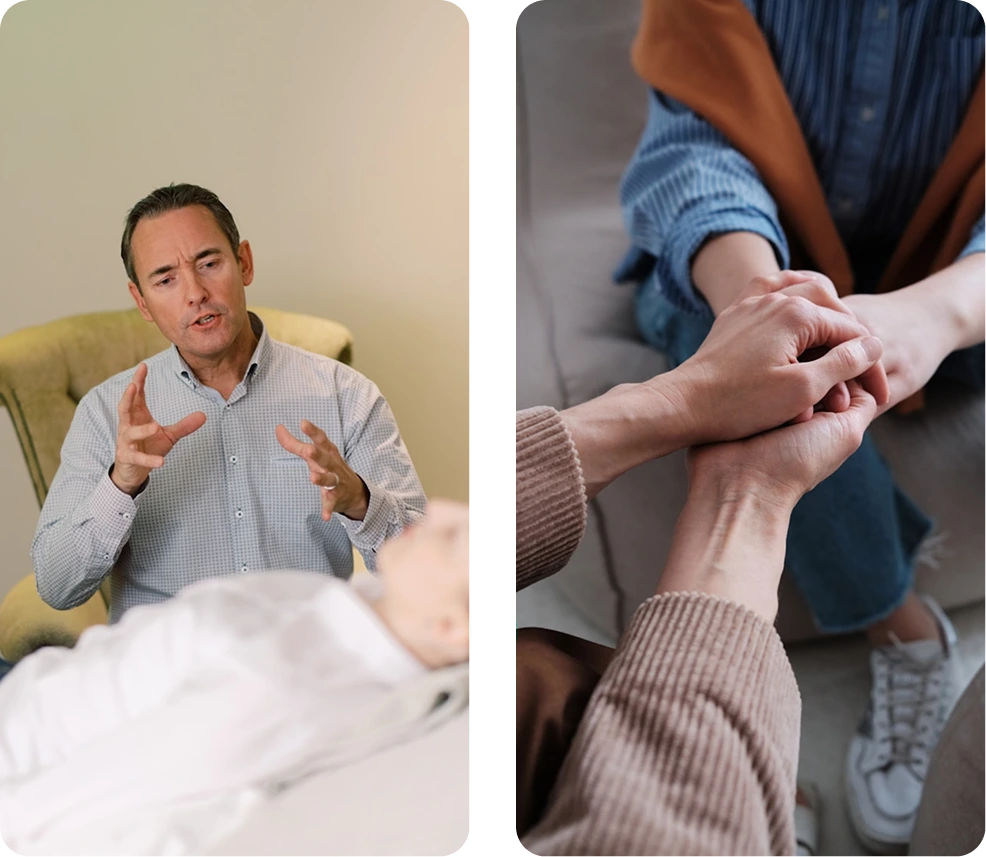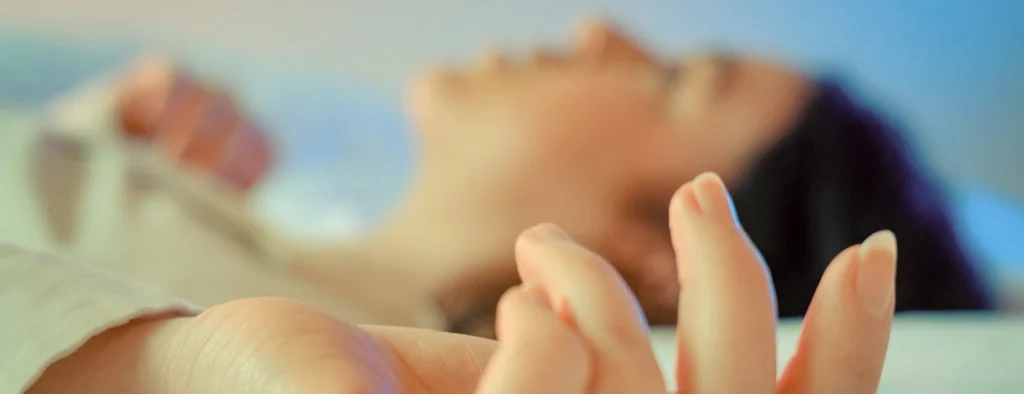Home » Dual Diagnosis Treatment Program in Maine » Depression Treatment Program in Maine


Also known as the Pine Tree State, Maine is the northernmost state in New England. Maine is also one of those places in the United States with a large number of people who suffer from depression. In fact, Maine has the third-highest rate of depression in America for 2022: 23.5%.
In this state, it’s not uncommon for people to suffer from the seasonal affective disorder (SAD), which is a form of depression that’s related to the change in seasons. SAD is more common in states that are far from the equator, like Maine. However, that’s not the only form of depression.
These are other forms of depression that are common in Maine.

This is the most common type of depression, and it’s characterized by a persistently low mood. People who have major depressive disorder may also experience changes in their appetites, sleep patterns, and energy levels. They may also have difficulty concentrating and making decisions.
Think of it this way: If you’ve been feeling down for two weeks or more, and this is impacting your ability to function in your day-to-day life, you may be suffering from major depressive disorder.
This is a less severe but more chronic form of depression. People who have dysthymia may have a number of the same symptoms as those who have major depressive disorder, but they’re not as severe. So, you may be able to function in your day-to-day life, but you’re not really enjoying it. Dysthymia can last for two years or more.
Also known as manic depression, bipolar disorder is characterized by extreme mood swings. People who have bipolar disorder may have periods when they feel excessively happy or energized, known as mania. But they also have periods where they feel excessively sad and depressed. That means that if you have bipolar disorder, you may alternate feeling unusally good with feeling unusually bad.
This can occur in women after they have a baby. It’s thought to be caused by the hormonal changes that occur after childbirth. Women who have postpartum depression may feel excessively sad, anxious, or angry. They may also have difficulty bonding with their babies.
If you’re wondering whether you have depression, there are some key signs and symptoms to look out for. If you’ve been feeling down for two weeks or more and this is impacting your ability to function in your day-to-day life, you may be suffering from depression.
According to the Diagnostic and Statistical Manual of Mental Disorders, 5th Edition (DSM-5), a diagnosis of major depressive disorder requires the presence of at least five of these:
The symptoms must be present during the same two-week period and include either depressed mood, loss of pleasure or interest in pleasurable activities, or both. If you think you might have major depressive disorder, know that it’s treatable, and many resources are available to help you, starting with your primary care doctor.
While the exact cause of depression is unknown, it’s thought to be a combination of genetic and environmental factors. That means that if you have a close family member who has depression, you are more likely to experience depression as well. But it’s also thought that stressful life events, such as the death of a loved one or a divorce, can trigger depression.
Some medical conditions, such as lupus, can also cause depression. And some medications, such as steroids, can lead to depression.
There is a strong link between depression and drug abuse. People who are depressed are more likely to turn to drugs or alcohol as a way to cope with their feelings of sadness, worthlessness, guilt, or hopelessness. Additionally, people who abuse drugs or alcohol are also more likely to suffer from depression.
This relationship can be a vicious cycle. People who are depressed may turn to drugs or alcohol as a way to cope, which can then lead to addiction. And people who are addicted to drugs or alcohol are more likely to experience depression.
That’s why it’s common for people who are struggling with depression to also struggle with addiction. If you’re dealing with depression and addiction, it’s important to seek treatment for both conditions.
The first step in treating depression is to assess the severity of the condition. A doctor usually starts with a physical exam, which can help rule out any underlying medical conditions that may be causing the depression.
Medical professionals will also ask about your symptoms, how long you’ve been experiencing them, and how they’re impacting your life. They may also ask about your family history of mental illness as well as any substance abuse problems.
Then, they will conduct a psychological evaluation. This evaluation may include a series of questions about your thoughts, feelings, and behaviors. It’s important to be honest during this evaluation, as it will help the medical team determine the best course of treatment.
Lastly, medical professionals may also conduct a social evaluation. This evaluation will look at your social support system as well as any stressors in your life.
Several types of programs are available at depression treatment centers. The first one is inpatient treatment. Inpatient treatment requires that you stay at the treatment facility for at least 30 days. This type of treatment is best for people are severely depressed or have suicidal thoughts.
The second type of program is an outpatient program. Outpatient programs allow you to live at home while attending therapy sessions and meeting with a mental health professional on a regular basis. This type of treatment is best for individuals with mild to moderate depression.
The third type of program is a partial hospitalization program (PHP). PHP allows you to live at home while attending therapy sessions during the day. This type of treatment is best for clients with moderate to severe depression.
The fourth type of program is an intensive outpatient program (IOP). IOP allows you to live at home while attending therapy sessions several times a week. This type of treatment is best for people with mild to moderate depression.
Once the depression has been assessed, a treatment plan can be developed. The plan will usually involve a combination of medication and therapy.
The type of medication prescribed will depend on the severity of the depression. For milder cases of depression, doctors may prescribe an antidepressant. For more severe cases of depression, they may prescribe an anti-anxiety medication or an antipsychotic medication.
Therapy is another important part of treatment. Cognitive behavioral therapy (CBT) has been shown to be effective in treating depression. CBT focuses on changing the negative thought patterns that can contribute to depression. Other approaches, such as interpersonal therapy (IPT) and psychodynamic therapy, may also be helpful.
There are many factors to consider when choosing a treatment program for depression. The first is the severity of your depression. If you are struggling with severe depression, you may need to consider an inpatient treatment program. If you are struggling with mild to moderate depression, an outpatient or PHP may be a better option.
The second factor to consider is your location. Inpatient treatment programs are typically located in hospitals or residential facilities. Outpatient, PHP, and IOP programs are typically located in outpatient mental health clinics.
The third factor to consider is the experience and quality of the staff. When choosing a treatment program, you should make sure that the staff is experienced and qualified to treat depression.
The goal of treatment for depression is to help you feel better and recover your zest for life. Most people who receive treatment for depression will see a significant improvement in their symptoms. However, it is important to remember that treatment takes time, and you may not see results immediately.
It is also important to keep in mind that there is no one-size-fits-all treatment for depression. What works for one person may not work for another. It is important to work with your mental health professional to find the best treatment option for you.
Depression cannot be cured, but it is a treatable condition. Many different types of treatment are available, and the best course of treatment will vary from person to person. However, there are certain steps that a typical treatment program for depression will take.

There are many mistakes that people make when trying to cope with depression. One of the most common mistakes is self-medicating with alcohol or drugs. While these substances may provide temporary relief, they will ultimately make your depression worse.
Another common mistake is trying to tough it out on your own. Depression is a serious condition that requires professional treatment. Trying to cope with depression by suffering in silence or waiting until their symptoms are life-threatening can be very dangerous.
Other mistakes depressed people sometimes make are choosing the wrong clinician or treatment option or sticking with a treatment plan that isn’t working.
Medical professionals advise that it’s time to seek help if your symptoms of depression cause problems with relationships, work, or your family, and you can see no clear solution. Talking with a mental health professional can keep persistent symptoms from getting worse.
If you or someone you know is having suicidal thoughts or feelings, get help right away. If your doctor’s office is closed, you can call a mental health hotline or simply go to the nearest emergency room.

If you know someone who is struggling with depression, there are a few things you can do to help. The first thing you can do is offer your support. Let them know that you are there for them and that you care about them. Secondly, you can encourage them to seek professional help. Depression is a serious condition that requires professional treatment. At Liberty Bay Recovery Center, our experienced medical professionals can provide help. Finally, you can offer to be a support system for them during their treatment.
If you are the one struggling with depression, know that you are not alone. Millions of people struggle with depression every day. With proper treatment, you can improve your symptoms and live a happy and fulfilling life. Contact us at Liberty Bay Recovery Center to get help for depression today.
RESOURCES
July 9, 2025
Attending your first social event after choosing sobriety can feel overwhelming You might wonder how...
June 19, 2025
Addiction can significantly impact the entire family dynamic Roles shift routines change and relationships can...
May 19, 2025
The liver naturally detoxes your body but what happens when it s overwhelmed by substance...
| Cookie | Duration | Description |
|---|---|---|
| .AspNetCore.Cookies | 11 months | This cookie is installed by BayMark Health Services, Inc. The cookie is used to maintain persistence with ChatGPT sessions. |
| .AspNetCore.CookiesC1 | 11 months | This cookie is installed by BayMark Health Services, Inc. The cookie is used to maintain persistence with ChatGPT sessions. |
| .AspNetCore.CookiesC2 | 11 months | This cookie is installed by BayMark Health Services, Inc. The cookie is used to maintain persistence with ChatGPT sessions. |
| .AspNetCore.CookiesC3 | 11 months | This cookie is installed by BayMark Health Services, Inc. The cookie is used to maintain persistence with ChatGPT sessions. |
| cookielawinfo-checkbox-advertisement | 1 year | Set by the GDPR Cookie Consent plugin, this cookie is used to record the user consent for the cookies in the "Advertisement" category . |
| cookielawinfo-checkbox-analytics | 11 months | This cookie is set by GDPR Cookie Consent plugin. The cookie is used to store the user consent for the cookies in the category "Analytics". |
| cookielawinfo-checkbox-functional | 11 months | The cookie is set by GDPR cookie consent to record the user consent for the cookies in the category "Functional". |
| cookielawinfo-checkbox-necessary | 11 months | This cookie is set by GDPR Cookie Consent plugin. The cookies is used to store the user consent for the cookies in the category "Necessary". |
| cookielawinfo-checkbox-others | 11 months | This cookie is set by GDPR Cookie Consent plugin. The cookie is used to store the user consent for the cookies in the category "Other. |
| cookielawinfo-checkbox-performance | 11 months | This cookie is set by GDPR Cookie Consent plugin. The cookie is used to store the user consent for the cookies in the category "Performance". |
| CookieLawInfoConsent | 1 year | Records the default button state of the corresponding category & the status of CCPA. It works only in coordination with the primary cookie. |
| elementor | never | This cookie is used by the website's WordPress theme. It allows the website owner to implement or change the website's content in real-time. |
| viewed_cookie_policy | 11 months | The cookie is set by the GDPR Cookie Consent plugin and is used to store whether or not user has consented to the use of cookies. It does not store any personal data. |
| Cookie | Duration | Description |
|---|---|---|
| _ga | 2 years | The _ga cookie, installed by Google Analytics, calculates visitor, session and campaign data and also keeps track of site usage for the site's analytics report. The cookie stores information anonymously and assigns a randomly generated number to recognize unique visitors. |
| _gat_gtag_UA_144352139_5 | 1 minute | Set by Google to distinguish users. |
| _gid | 1 day | Installed by Google Analytics, _gid cookie stores information on how visitors use a website, while also creating an analytics report of the website's performance. Some of the data that are collected include the number of visitors, their source, and the pages they visit anonymously. |
| Cookie | Duration | Description |
|---|---|---|
| __ctmid | 1 month | CallTrackingMetrics sets this cookie to determine the advertising channel that led a visitor to the website and also show the tracking phone number that corresponds to that channel. |
| Cookie | Duration | Description |
|---|---|---|
| ct150553 | session | No description |
| nitroCachedPage | session | No description |